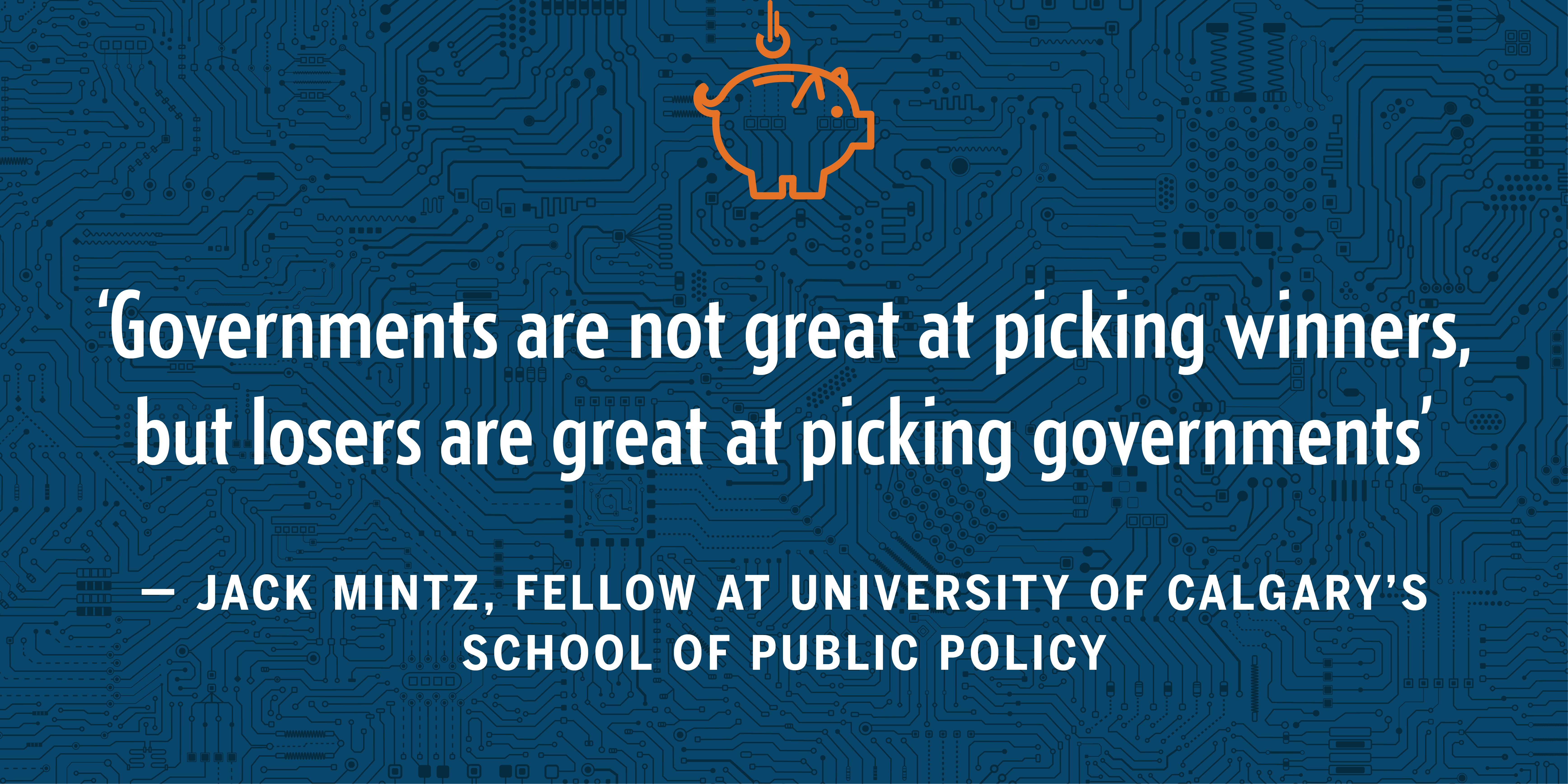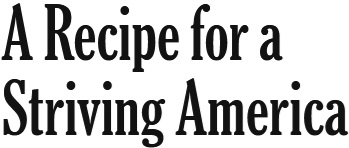Industrial policy is when politicians and bureaucrats use various combinations of tax, spending, and regulatory policies to steer the economy.
In other words, they are putting their thumbs on the scale to pick winners and losers.
It means replacing the “invisible hand” of the market with the “grabbing hand” of politics.
I’m motivated to write on this issue today because of a very strange column by David Brooks in the New York Times.
He basically acknowledges that industrial policy has a track record of failure, but he somehow hopes that things will be different in the future.
A new bipartisan we-need-to-rebuild-manufacturing mantra is taking hold. …Joe Biden has…been an industrial policy president. He’s tried to use hundreds of billions of dollars to help America build things — through big infrastructure projects and in factories. …
The government chooses key sectors that will spur economic growth… The government supports those sectors with direct subsidies, tax credits, trade protections and other measures. …Will it contribute to social cohesion and an American economic renaissance, or just become a sinkhole of debt-funded spending that will drag us to stagnation? …
I have no philosophic objections to aggressive government efforts to reshape the American economy. …But I wasn’t born yesterday. Industrial policy has been around for a while, and it’s often been a miserable failure. …
If I were an economist I might be wary, given industrial policy’s mostly unsuccessful record. But I’m a journalist… So, at the end of the day, I agree with those who say the question is not whether we do industrial policy, but how.
Well, looks let at two recent examples of “how” Washington does it.
The Wall Street Journal has a new editorial
about the Biden-Harris initiative to subsidize and promote broadband
access. At the risk of understatement, it’s been a disaster.
…consider the “internet for all” plan that President Biden tapped Kamala Harris to lead. Fiasco is the word for it. The 2021 infrastructure law included $42.5 billion for states to expand broadband to “unserved,” mostly rural, communities. Three years later, ground hasn’t been broken on a single project. …
Blame the Administration’s political regulations. States must submit plans to the Commerce Department about how they’ll use the funds and their bidding process for providers. Commerce has piled on mandates that are nowhere in the law and has rejected state plans that don’t advance progressive goals. …
Commerce hoped to spread the cash to small rural cooperatives, but the main beneficiaries will be large providers that can better manage the regulatory burden. Bigger businesses always win from bigger government. …The Administration has also stipulated hiring preferences for “underrepresented” groups, including “aging individuals,” prisoners, racial, religious and ethnic minorities, “Indigenous and Native American persons,” “LGBTQI+ persons,” and “persons otherwise adversely affected by persistent poverty or inequality.” …
The broadband non-rollout is a classic of modern progressive government. Authorize money for a cause that private industry could do better, but then botch the execution with identity politics and union favoritism.
And here are some excerpts from an Autoweek report back in May about the Biden-Harris plan to subsidize the use of electric cars.
The Biden Administration’s $7.5 billion effort to jump-start the electric-vehicle charging landscape is moving very, very slowly. Now more than two years after the program was signed into law in late 2021, only eight chargers have been put in place. …
Americans remain worried about range anxiety and finding a place to charge, and the federal funding hasn’t yet been a big factor in changing that—or reversing the current slump in EV sales. …
Alexander Laska, deputy director for transportation and innovation in the Climate and Energy Program at the Third Way think tank, puts a positive spin on the pace of charger installation, attributing it in part to complicated regulations on the federal and state level. The money, Laska says, “comes with dozens of rules and requirements around everything from reliability to interoperability, to where stations can be located, to what certifications the workers installing the chargers need to have.”
Wow. If that’s the “positive spin,” no wonder the proponents of intervention are doing such a bad job.
But, to be fair, at least eight new chargers now exist, which is better than the number (zero!) of new broadband customers that are being served.
In neither case, though, is there even the slightest scent of success. Washington is squandering tens of billions of dollars in exchange for almost nothing.
Not that we should be surprised. Industrial policy has a track record of failure in the United States, dating all the way back to the 1800s. In more recent years, it’s also been a failure in Japan and China.
Mr. Brooks of the New York Times says he’s a journalist rather than an economist, but that’s no excuse for not understanding history.


No comments:
Post a Comment